When the Wallabies flew out of Japan on October 24 for London ahead of their final three tests of the year, all seemed rosy on the outside.
On the back of five straight wins, the Wallabies were back on top and journalists had been assured Quade Cooper, at least, was heading with them.
They might have lost their major sponsor Qantas a year earlier, but the Wallabies had rediscovered the spirit of Australia under Dave Rennie.
Back home, Rugby Australia’s house was getting in order, with former News Corp executive Hamish McLennan living up to his reputation as “the hammer” and ushering through a new era, which cut through the PR spin and made some noise on and off the field.
Under the surface though, tensions were at boiling point.
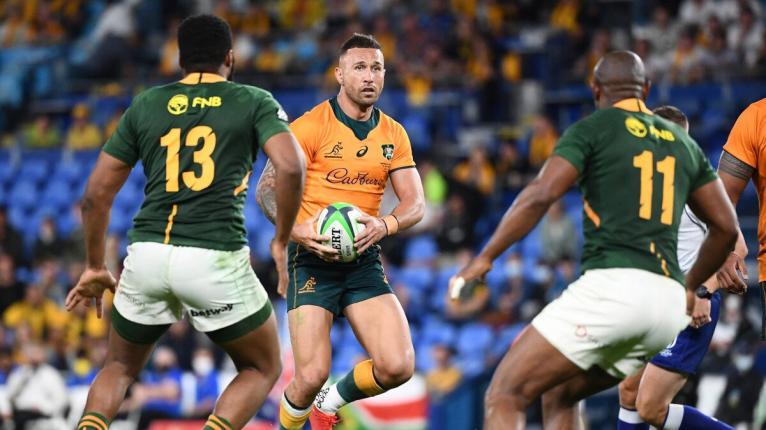
Cooper, as well as Japanese-based test teammates Samu Kerevi and Sean McMahon, had failed to get on the plane.
That came despite Rennie replying swiftly “yep” in response to whether Cooper was getting on the plane for the November tests against Scotland, England and Wales.
Naïve or not, the local press, none of whom were on route to the United Kingdom because of the Fortress Australia mentality evoked by Prime Minister Scott Morrison, bought it.
But, as revealed by this correspondent, Kerevi and McMahon had meetings on the Monday, 48 hours after the 32-23 win over Japan, with their Japanese club Suntory to determine their involvement on the tour.
By Tuesday morning, it was revealed neither would take part on the tour and, later that afternoon, Rennie confirmed their withdrawals, while he said Cooper was in doubt.
One day later, Cooper had withdrawn, signalling an intent to return to his club Kintetsu Liners.
As the Rugby Championship moved into its final two matches, the Wallabies started getting edgy as they sought clarification over whether the Japanese trio would in fact travel on the tour.
For weeks the Wallabies had attempted to hose down reports the Japanese trio were considering standing down from the tour despite World Rugby’s regulation nine stating they had to be released.
They were taking the softly, softly approach when speaking to the media.
“I think ‘what’s clouded’ is not so much for us,” said Rennie. “Obviously, we’ve been having ongoing discussions, but as opposed to us just coming in and saying ‘we’re taking him’, we’re trying to talk to the clubs and come to a resolution that suits everyone.
“That’s been our mindset. I think the relationship’s important. We think we’ll get a positive resolution.”
Behind closed doors though, Wallabies management were more forceful.
As the Rugby Championship moved into its final two matches, the Wallabies started getting edgy as they sought clarification over whether the Japanese trio would in fact travel on the tour.
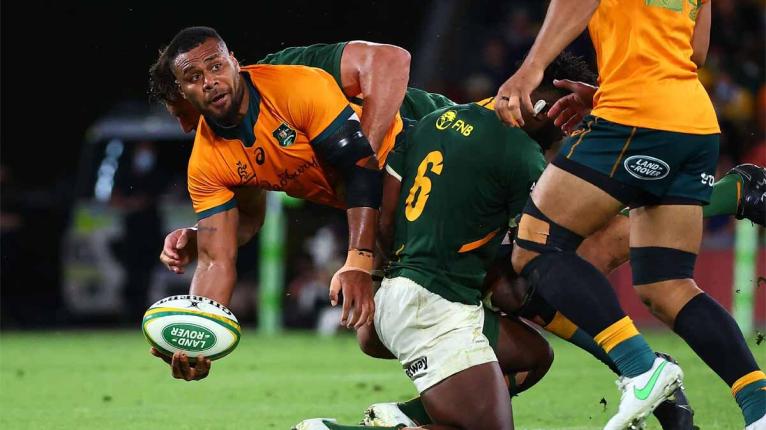
Rugby Australia director of rugby Scott Johnson told Cooper in no uncertain terms that he could not pick and choose when he wanted to make himself eligible.
He was threatened he was putting his Wallabies career at risk should he opt out of the spring tour.
The heavy-handed conversation filtered back to Kerevi and McMahon, which left a bitter feeling in all three Wallabies.
Later, on the Gold Coast, it’s understood Kerevi too was blackmailed by senior Wallabies management.
It led to one Wallabies coach ringing Kerevi and apologising a day later, after the Wallabies centre hit back, telling management he had given everything to Australian rugby over the previous five months, including completing two 14-day hard quarantine periods.
Despite all three players expressing reservations about travelling, including about what their clubs would think, they were named on the tour.
They said they had concerns around their club and how their club would feel about them travelling in November, close to the start of the season, but they all reassured me they were keen to travel and for that reason, we got in negotiation with the club.
Wallabies coach Dave Rennie
Once news filtered out they had pulled out, RA CEO Andy Marinos questioned their integrity in an interview with The Sydney Morning Herald.
Marinos said they had not been honest about their intentions of being available.
Hours later, Rennie set the record straight by telling a small group of reporters they were aware of concerns, but believed they could be ironed out.
“I spoke to those boys on the Gold Coast [during The Rugby Championship],” Rennie said.
“They said they had concerns around their club and how their club would feel about them travelling in November, close to the start of the season, but they all reassured me they were keen to travel and for that reason, we got in negotiation with the club.
“They weren’t happy that it was just reg nine and for us to go in and tell the club that we’re taking them, hence the multiple Zoom meetings to try and sort through the problem.”
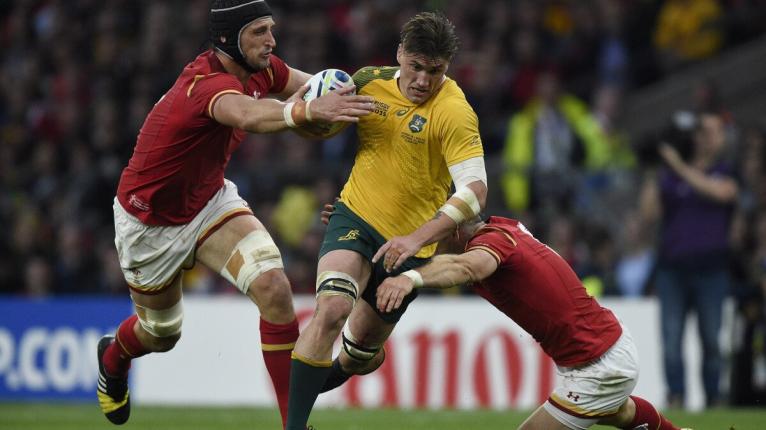
The messy circumstances were bound to occur at some point because of the lack of clarity regarding national eligibility for players plying their trade overseas.
All three thought their days in Wallaby gold were over when they left for Japan despite Cooper being eligible under the ‘Giteau Law’.
They each signed $1million deals assuming they would not be picked for the Wallabies again.
Cooper for form reasons, Kerevi and McMahon because neither had played 60 tests and given seven years of service to Australian rugby.
The arrival of Rennie, as well as a change in administration, saw RA loosen their eligibility laws.
Yet even in June, only Kerevi was in the picture to play for the Wallabies again after being brought into the Australian sevens set-up for the Olympics.
Now after their controversial withdrawals, the Wallabies’ assignment suddenly looks difficult.
Cooper, meanwhile, had not played consistently for the Wallabies since 2011 and not run out for Australia for more than four years.
But after Kerevi and Cooper combined brilliantly to lead the Wallabies to four straight wins over South Africa and Argentina, the whole narrative changed.
The Wallabies wanted the duo, as well as the destructive McMahon, for the November tests.
RA, still cash-strapped with more cuts on the way to its senior high-performance staff, wanted to build on their winning momentum and in particular pencilled in the test against England as a key fixture in the calendar.
Now after their controversial withdrawals, the Wallabies’ assignment suddenly looks difficult.
Their backline, often guilty of throwing intercepts and crabbing sideways, have resorted to bringing in Kurtley Beale to give them some experience and utility value.
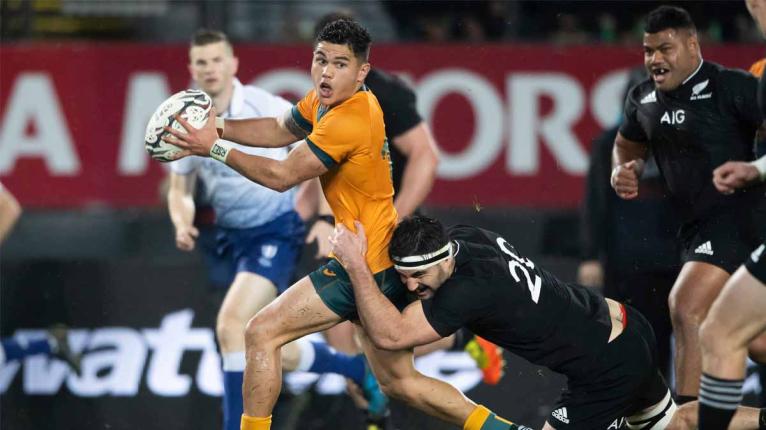
Brumbies youngster Noah Lolesio, who led the Wallabies to a gripping 2-1 series win over France but was dropped after a trio of defeats to the All Blacks, has also just arrived in Edinburgh to provide backup to James O’Connor.
Yet, up front, the Wallabies have turned to France to stiffen up their forward pack.
Forwards rarely get the same headline praise that fleet-footed backs do, but the returns of hooker Tolu Latu and second-rowers Will Skelton and Rory Arnold can provide the same impetus Cooper and Kerevi offered.
In the dreary, wet-trodden conditions of Murrayfield and Twickenham, the trio of forwards can take the Wallabies pack forward.
They have suddenly been given a much-needed supersize transformation, with all three men world class.
Although a downcast Rennie did not want to buy into whether the Japanese trio would play for the Wallabies again and just how damaged the relationship would prove to be, RA sources are still adamant they will pick them if available.
Without them, they lack ball-carrying impetus from their second row, while they are too reliant on Taniela Tupou in the front row.
Skelton’s injection off the bench, with Arnold denting the line from the get-go, will provide the Wallabies with multiple weapons off the bench.
They have gone from wind power to nuclear overnight.
Their returns, as well as the cover provided by Colby Fainga’a and Duncan Paia’aua, will provide RA more insight and another look into their eligibility laws.
Although a downcast Rennie did not want to buy into whether the Japanese trio would play for the Wallabies again and just how damaged the relationship would prove to be, RA sources are still adamant they will pick them if available.
What has been made clear to RugbyPass is RA, as well as the Wallabies, need to get with the times and have an open dialogue with player agents and their clients.
Whatever beef they have with agents finding their clients their best deals in a hostile and progressive climate must stop.
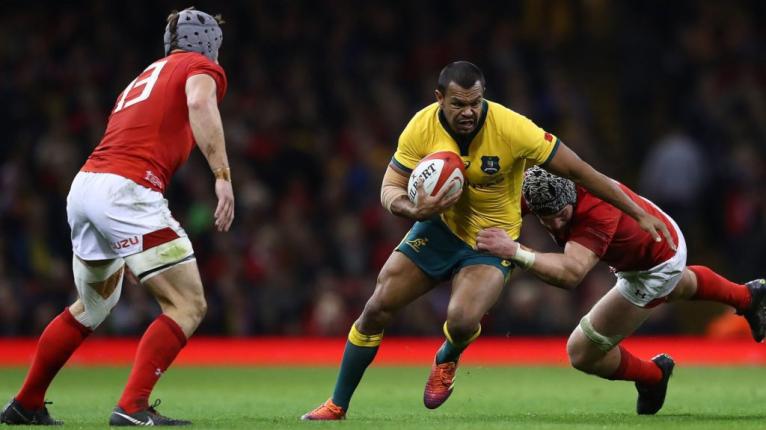
RA, as well as the Australian states, have been aggressive to anyone who has put offers on the table for deals overseas.
Sunday’s test against Scotland – a nation they have lost consecutive tests against, including conceded 53 points in their last visit to Murrayfield – is vital.
The importance of Cooper and Kerevi will be made clearer by the performance and outcome.
Should they win, the final two tests become a free hit.
They can walk into Twickenham, a stadium they considered home in 2015 until losing four straight tests under Michael Cheika including the World Cup final, confident of heaping more pressure on Eddie Jones.
A loss, on the other hand, will see the Wallabies immediately on the back foot as they scramble to finish the year on a high.
With a home three-match series against England to start their 2022 season, which is quickly followed by another Bledisloe campaign, finishing 2021 on a high is imperative so they start next year with the winds at their backs.


Comments
Join free and tell us what you really think!
Sign up for free